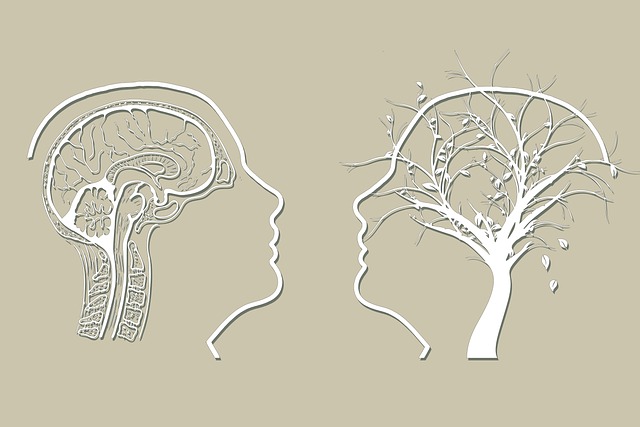Broomfield Blended Families Therapy leads community outreach efforts to enhance mental health access and sensitivity in diverse multicultural communities. By engaging with local organizations, schools, and families through workshops, storytelling, and art therapy, they promote cultural understanding and self-care practices. Their strategies focus on educating families about resources, normalizing mental health support, and improving wellness outcomes, as measured by family dynamics improvements and enhanced emotional well-being. These initiatives build a connected community where every blended family has access to tailored care.
Broomfield Blended Families Therapy is transforming lives through community outreach programs that foster connection and understanding. This comprehensive guide explores the profound importance and far-reaching benefits of such initiatives, highlighting their role in strengthening family dynamics and overall well-being. From designing engaging programs to building strategic partnerships with local organizations and schools, we provide actionable strategies for impactful outreach. Discover innovative activity ideas, learn successful measurement techniques, and understand how these programs can make Broomfield Blended Families Therapy a beacon of positive change.
- Understanding Community Outreach: Its Importance and Benefits for Broomfield Blended Families Therapy
- Designing Effective Programs: Strategies for Engaging the Community in Broomfield
- Building Partnerships: Collaborating with Local Organizations and Schools
- Implementing Outreach Activities: Ideas for Interactive Engagement and Education
- Measuring Success and Impact: Evaluating the Effectiveness of Broomfield Blended Families Therapy Programs
Understanding Community Outreach: Its Importance and Benefits for Broomfield Blended Families Therapy

Community outreach programs play a pivotal role in extending the reach and impact of mental health services, particularly for diverse populations like those served by Broomfield Blended Families Therapy. Understanding community outreach involves recognizing its importance in addressing unique challenges faced by blended families within the context of Broomfield’s multicultural landscape. By actively engaging with these communities, therapists can foster cultural sensitivity in mental healthcare practice, ensuring services are inclusive and tailored to diverse needs.
This approach not only enhances access to care but also promotes improved mental wellness outcomes. Outreach initiatives can help break down barriers to therapy by educating families about available resources and normalizing the pursuit of mental health support. Moreover, effective outreach strategies incorporate risk management planning for mental health professionals, enabling them to navigate complex cultural and familial dynamics with sensitivity and effectiveness.
Designing Effective Programs: Strategies for Engaging the Community in Broomfield

In Broomfield, designing effective community outreach programs requires a deep understanding of the local landscape and its diverse population. Engaging the community effectively involves tailored strategies that cater to the unique needs and interests of residents. One key approach is fostering Cultural Sensitivity in Mental Healthcare Practice. Recognizing and respecting the cultural backgrounds of individuals, especially in a city with a growing blended families therapy demographic, is paramount. This sensitivity can be woven into program design by incorporating culturally relevant activities, ensuring multilingual resources, and training volunteers to interact with diverse communities in meaningful ways.
Promoting self-care practices and emotional well-being promotion techniques should be central to these initiatives. Outreach programs can facilitate workshops on stress management, mindfulness, and healthy coping mechanisms tailored to different age groups and cultural contexts. By integrating these strategies, community members gain valuable tools for maintaining their mental health while fostering a sense of belonging and support within the Broomfield community.
Building Partnerships: Collaborating with Local Organizations and Schools

Building strong partnerships with local organizations and schools is a cornerstone of successful community outreach for Broomfield Blended Families Therapy. By collaborating closely with these entities, we can expand our reach and provide tailored support to families in need. For instance, partnering with schools allows us to integrate Emotional Regulation and Self-Awareness Exercises into educational programs, empowering young individuals to manage their emotions effectively from an early age. Similarly, working alongside community organizations enables us to offer specialized Trauma Support Services to those who have experienced adverse events, fostering a safer and more supportive environment for everyone.
These partnerships are mutually beneficial. Schools gain access to expert therapists who can facilitate workshops and seminars on crucial topics like mental health awareness and coping strategies. Organizations benefit from the professional expertise of our team, allowing them to enhance their services and better serve the families they support. Together, we can create a more resilient and connected community where every family has access to the resources they need to thrive.
Implementing Outreach Activities: Ideas for Interactive Engagement and Education

Implementing Outreach Activities that foster interactive engagement and education is a vital strategy for organizations like Broomfield Blended Families Therapy to connect with the community they serve. Through creative initiatives, such as hosting workshops on mental wellness journaling exercises or providing guidance on depression prevention and mood management techniques, organizations can reach individuals who might otherwise be hesitant to seek help. These interactive programs not only raise awareness about emotional health but also offer practical tools for managing daily stressors, making them accessible and engaging for diverse audiences.
Engaging activities like storytelling circles, art therapy sessions, or even virtual reality experiences can make complex topics more digestible and less intimidating. By incorporating these innovative approaches, Broomfield Blended Families Therapy can encourage open dialogue about mental health while promoting a sense of community. Such initiatives not only help individuals but also contribute to building a supportive environment where emotional well-being is prioritized, fostering positive changes within the community at large.
Measuring Success and Impact: Evaluating the Effectiveness of Broomfield Blended Families Therapy Programs

Measuring success and impact is a crucial aspect of evaluating the effectiveness of Broomfield Blended Families Therapy programs. To gauge the positive outcomes, various metrics can be employed. These include tracking improvements in family dynamics, enhanced communication, and reduced conflict resolution instances over time. By comparing pre-and post-program assessments, researchers and therapists can identify key areas where the therapy has made a significant difference. For instance, measuring the frequency of arguments and the level of satisfaction within families can provide tangible evidence of the program’s success in fostering healthier relationships.
Additionally, focusing on the development of essential skills like stress management, emotional intelligence, and establishing self-care routines contributes to the overall impact assessment. The ability to recognize and manage stress effectively is a cornerstone of mental well-being, as are high levels of emotional intelligence, which can lead to better decision-making and empathy within families. Observing participants’ progress in these areas through qualitative feedback and structured interviews offers a comprehensive view of how Broomfield Blended Families Therapy programs positively influence the lives of blended family members.
Broomfield Blended Families Therapy can significantly enhance community well-being through strategic outreach programs. By designing engaging activities, building robust partnerships with local organizations and schools, and effectively measuring impact, this therapy can foster a supportive network for all families in Broomfield. Implementing these practices not only benefits individual households but also strengthens the overall social fabric of the community.














